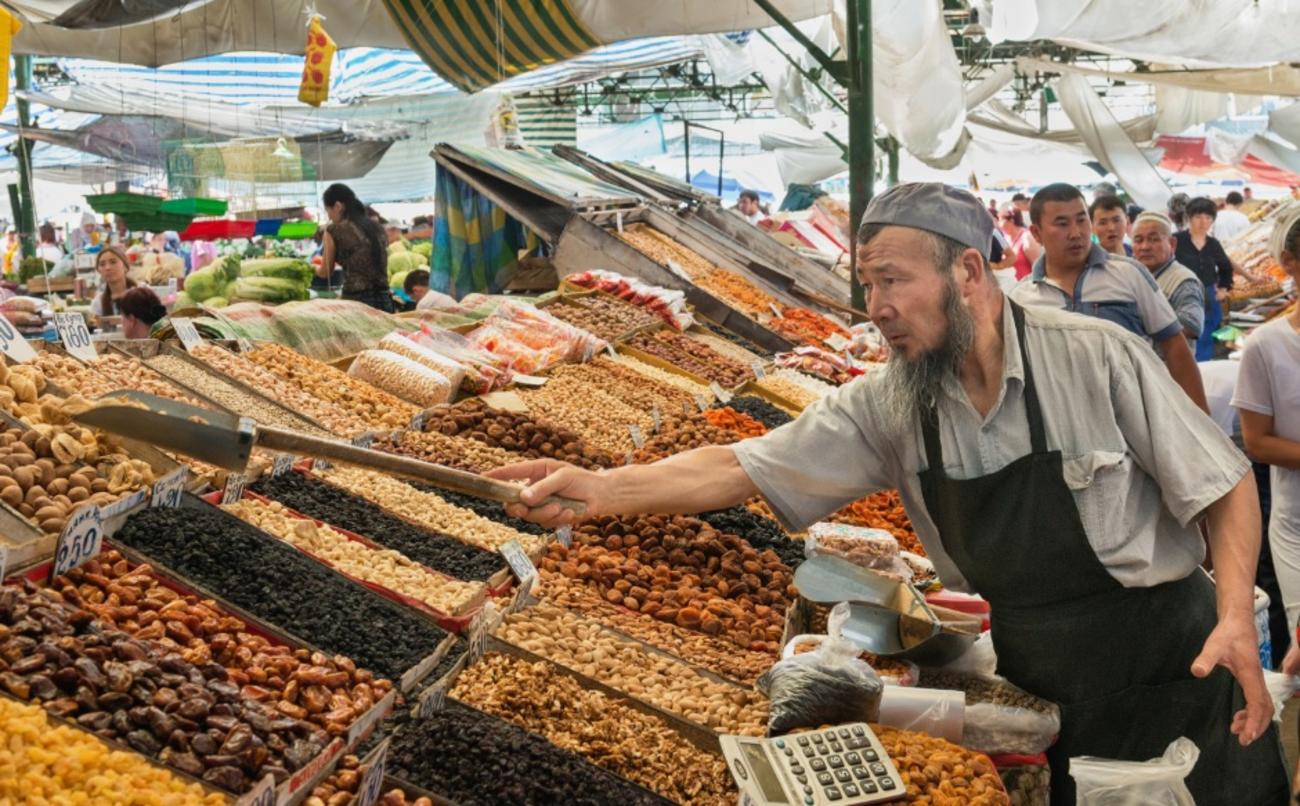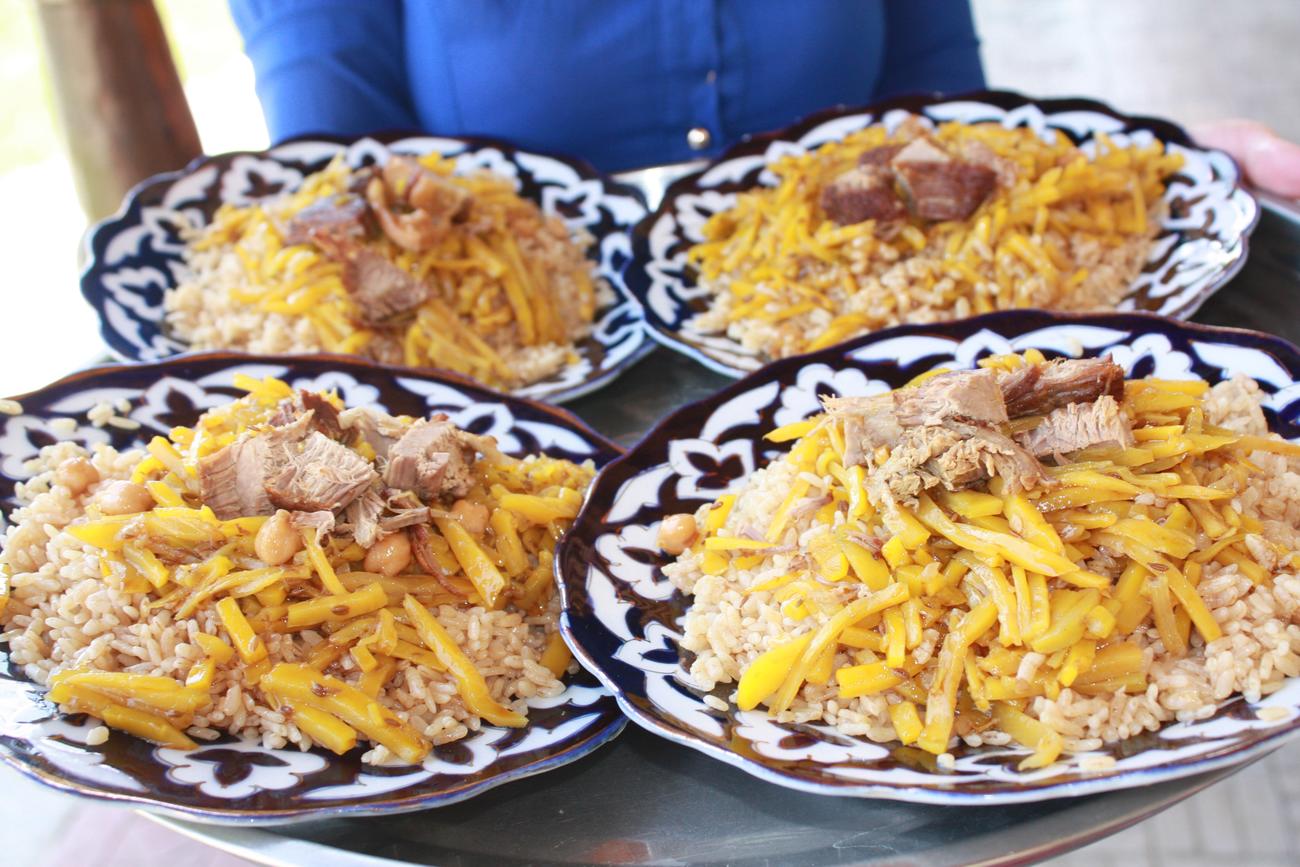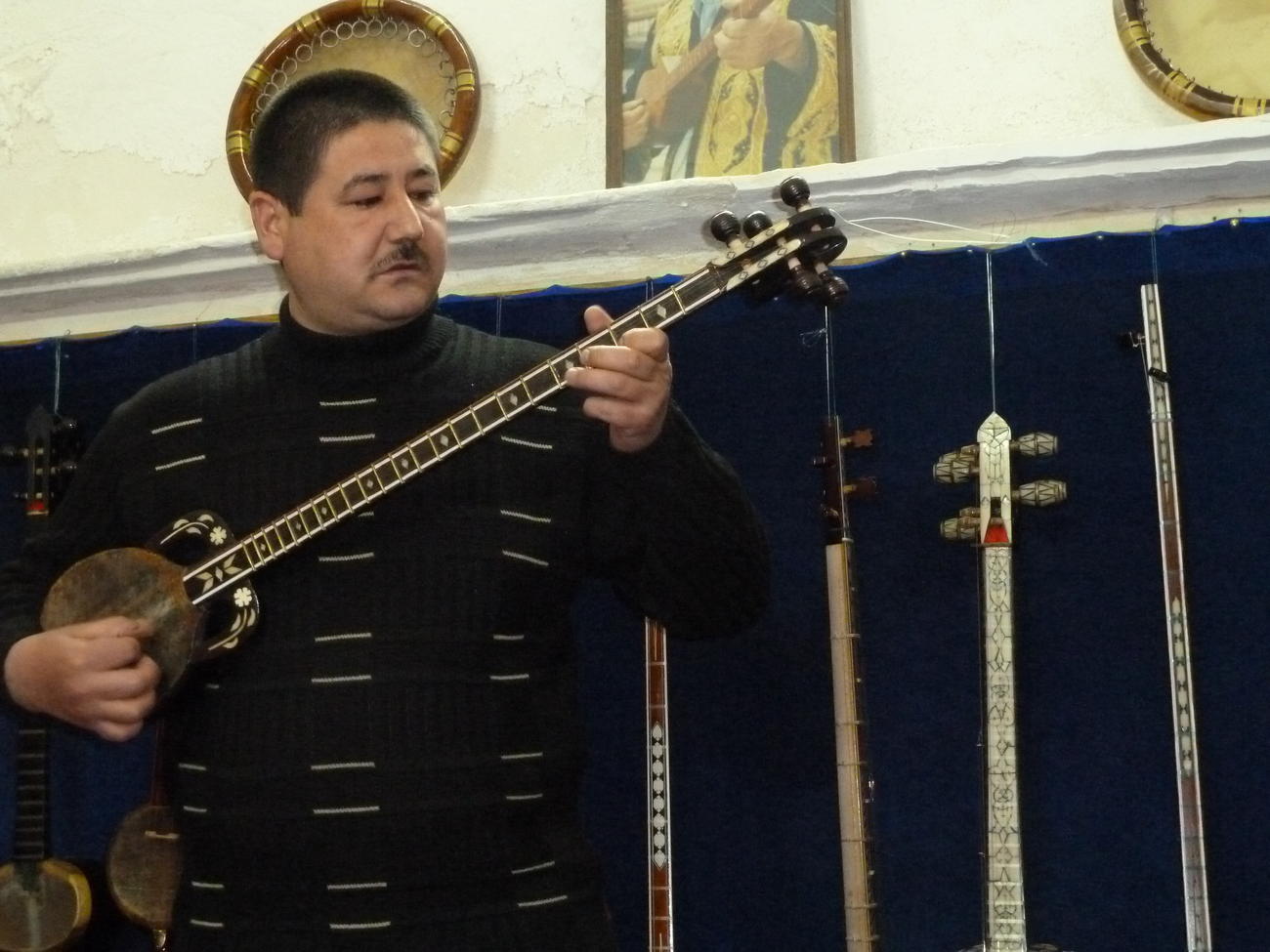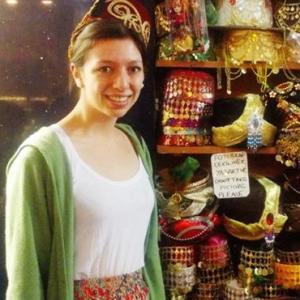Travel and food writer Caroline Eden paired up with Eleanor Ford, editor for the Good Food Channel and BBC Good Food, to produce the recently published and stunningly presented Samarkand, a collection of recipes and stories from Central Asia and the Caucasus.
The book provides tasty recipes with Persian, Turkish, Jewish, Russian, Georgian and even Korean influences. There are also some lovely images of Uzbekistan and its neighbouring countries, and insights into their culture and cuisine. Great recipes to try include Uzbek Pumpkin Manti, Georgian Chicken with Walnut Sauce, Pomegranate and Vodka Sorbet and of course Samarkand Plov.
We asked Caroline Eden some questions about writing the book and her passion for the seductive Silk Road.
Q: With your book, Peter Frankopan’s Silk Roads book and Dr Sam Willis’ Silk Road series on BBC, why do you think there seems to be a renewed interest in this ancient trade route?
A: I think interest is always there, it’s just a neat coincidence that there’s a buzz of activity at the moment. The Silk Road, hard to pin down as it is, is incredibly romantic to many travellers, myself included. In reality, while it evokes fairy-tale images of plumed turbans and pomegranates, this trade route during its zenith was also very much about bandits, deadly sandstorms and minds lost in the desert sands, yet this seems to be overlooked in favour of oasis cities and camel caravans. Travelling the world’s first superhighway of ideas and trade certainly appeals to most curious types.
Q: How did you come up with the idea of a Central Asian cookbook?
A: I felt frustrated that the tasty dishes I was eating in people’s homes were dismissed in guidebooks as ‘plov, plov and more plov.’ I ate well on the whole, especially away from tourist restaurants (which are not always great): dumplings, noodle soups, salads, kebabs, soups, fermented drinks (so fashionable in the west today) and literally the best fruit, is all readily available. Who’d have thought Korean or Peruvian food would become as trendy as it has ten years ago? I thought why not? I thought I could use my experience of travelling in the region and staying in people’s homes to show a positive side to the much misunderstood 'stans.

Q: What are the key flavours used in Central Asian cuisine?
A: Sweet, tart flavours from pomegranates, raisins, quince and barberries. Herbs like purple basil and tarragon, especially in drinks. Cumin used sparingly, a little heat in Korean salads found in markets.

Q: What’s your favourite Central Asian dish?
A: It has to be the king of Uzbek cuisine, plov. Cooked well it is a delight and a real hero dish, slow cooked, soft, filling - the ultimate comfort food. At its most basic, plov is rice, onions and carrots with either lamb or beef but in reality it is much more than that. For Uzbeks it represents hospitality, community and identity. In cities, towns and tiny villages, the air is laced with the aroma of carrots, meat and rice that drifts up from bubbling cauldron-like kazans. Plov is also a fittingly hearty dish for a country whose national sport is kurash, a form of upright wrestling.
Q: You’ve specialised as a writer in Central Asia, what is it about that region that appeals to you?
A: The mix of Soviet legacy and the versions of Islam you find in each country is part of what makes the region so fascinating. Twenty-five years on after the fall of the USSR you can see how the Soviet era hangover lingers on and how the country has changed since 1991. Soviet apartment blocks are gradually being upgraded and while you won’t spot Lenin statues (they’ve been replaced by new pin-ups, namely the nomadic conqueror Tamerlane and the celebrated medic Abu Ali ibn-Sina) you will see plenty of samovars (Russian kettles) and Soviet military medals for sale in the markets. Master ikat weavers who were collectivised and had their workshops forcibly modernised in the Soviet period are reviving weaving traditions almost lost and many musicians and artists are now turning to their Islamic heritage for influence. Alcohol has stayed on. Russians introduced vodka to Central Asia and a heady stream of it has flowed freely into every corner of society ever since.

If you want to learn more about the Silk Road: view our infographic here.
Samarkand by Caroline Eden and Eleanor Ford, published by Kyle Books, priced £25. Photography by Laura Edwards.
